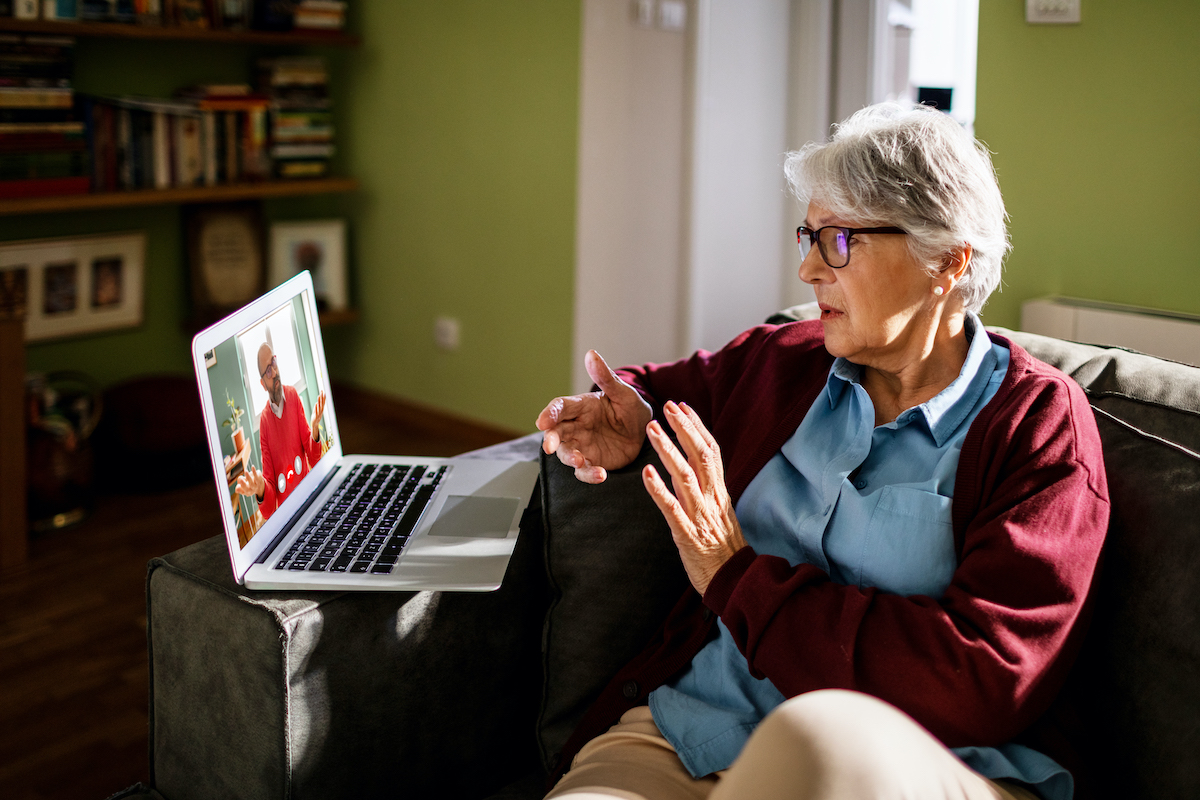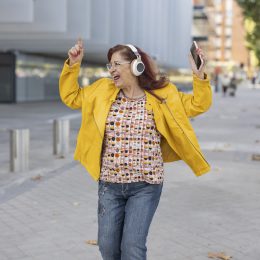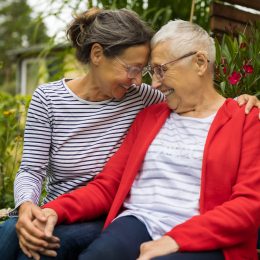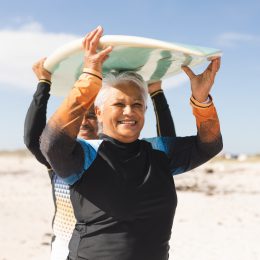The Best Online Support Groups for Alzheimer’s Caregivers
Helping your loved one means caring for yourself too. Start here.

Caring for a loved one who has Alzheimer’s can be incredibly meaningful and rewarding—but it can also be frustrating, lonely, and overwhelming. That’s why putting support in place before you think it’s necessary is a crucial part of maintaining your own emotional well-being.
“Any kind of high-level caregiving can be draining, and that’s often true with Alzheimer’s, especially as the disease progresses,” says Scott Kaiser, M.D., a geriatrician and director of geriatric cognitive health for Pacific Neuroscience Institute at Providence Saint John’s Health Center in Santa Monica, California.
“In addition to making sure you take care of yourself in terms of exercise, sleep, and healthy eating, it’s important to have others who understand and resources that help you feel like you’re not doing this alone,” he adds.
Here are some online support groups and other helpful resources to consider.
3 Ways Alzheimer’s Caregivers Can Find Support Online
1. The Alzheimer’s Association’s Virtual Support Groups
While family and friends can be invaluable, it’s also helpful to talk with people who are facing the same challenges as you. Because of that, the Alzheimer’s Association hosts a number of virtual support groups every day.
Unlike an online chat room or bulletin board—like you’d find on reddit.com, for example—these groups are facilitated by trained professionals. They offer specialized groups for early-stage Alzheimer’s, adult caregivers, and others with specific needs.
Once you’re on the Support Groups page, you can search by keyword (“caregiver,” for example) or simply peruse all events to find one that appeals to you.
You’ll need to create an account to register for a support group—it’s free and takes two minutes—and then you can join by phone or through Zoom. (Not comfortable using Zoom? Check out these tips.) The Alzheimer’s Association website (www.alz.org) offers a 24-hour helpline for assistance if needed.
If you prefer a bulletin-board format, the organization features ALZConnected (www.alzconnected.org), which is also free, easy to navigate, and available for anyone affected by Alzheimer’s or another dementia. There’s a caregivers forum that’s geared toward sharing experiences and offering support to one another.
2. Facebook Groups
Facebook has several options to find other caregivers eager to connect and support one another. One of the most notable is Memory People, with just over 24,000 members. Created in 2010 by a man with early-onset Alzheimer’s, the group brings together not just caregivers but also health professionals, patients, and advocates.
Other helpful Facebook groups include:
- Dementia/Alzheimer’s Family Caregiver Support
- Alzheimer’s and Dementia Caregivers Support
- The Purple Sherpa Basecamp
- Alzheimer’s and Dementia Support
- Alzheimer’s Support Group
Many of these groups are private, but if you click “Join Group” in the top right corner, a request is sent to an administrator and often quickly approved—once they confirm you’re not a spambot.
3. The Family Caregiver Alliance
Another key resource, the Family Caregiver Alliance runs unmoderated groups that include Alzheimer’s caregivers. The organization also offers other types of groups, including some that meet over Zoom, such as young adult caregivers, LGBTQ caregivers, and a telephone support group in Spanish.
The website (www.caregiver.org) offers specific instructions for how to join each group on its Support Groups page.
Subscribe to our newsletter
It's quick and easy. You could be one of the 13 million people who are eligible.
Already a member? Click to discover our 15,000+ participating locations.
Follow Us
More Ways Technology Can Help Support Caregivers
Online support groups can be invaluable when it comes to sharing your thoughts on caregiving and finding support. But that’s not the only way technology can be useful, says Preet Anand, founder of an app called Snug Safety, which “checks in” on users and alerts emergency contacts if there’s no response.
Because it works on a smartphone, the app can send medical help to a user’s last known location, as opposed to a home address—a particularly notable feature for people with Alzheimer’s who are in danger of wandering.
“What many caregivers want is assurance on a daily basis that their loved one is okay, especially if it’s a day they won’t be seeing them,” Anand says. “And for the person with Alzheimer’s, it can give them a sense of independence.”Monitoring apps aren’t the only thing that can make a difference, he says. There are hundreds, if not thousands, of apps that can help improve quality of life as well. That might be an app that provides stimulating games, language lessons, music trivia, and other fun activities.
Some apps allow you and your loved one to use them together, which can be a great way to support both of you. For example, MindMate was founded by former caregivers and designed for people with dementia. Some of its features include puzzles, simple workout routines, and entertainment to keep your brain engaged.
“Physical exercise is, of course, essential for everyone, including those with Alzheimer’s, but you should make sure there’s mental fitness as well,” Anand says. “The goal is to help your loved one age in place, happily, for as long as possible. And that can give you comfort as well, which is a big part of taking care of yourself as a caregiver.”
Take Your Favorite SilverSneakers Classes Online!
SilverSneakers members can access live fitness classes and wellness workshops through SilverSneakers LIVE. See the latest schedule and RSVP for classes here.
Not a member? If you have a Medicare plan, it may include SilverSneakers—at no additional cost. Check your eligibility instantly here.





